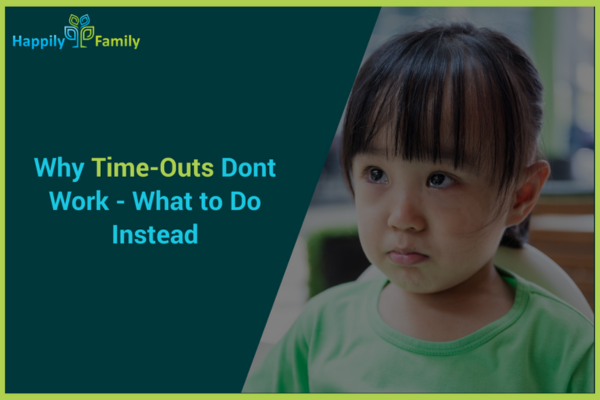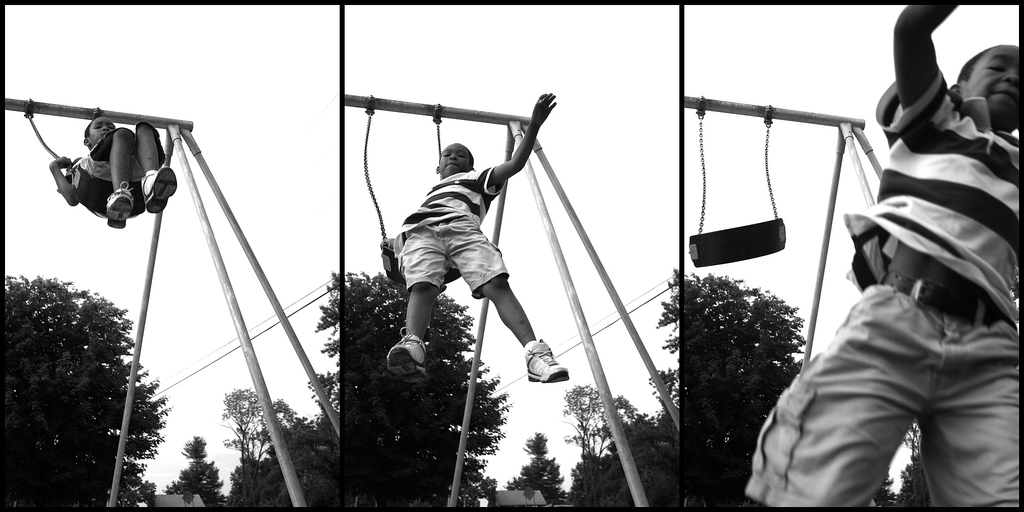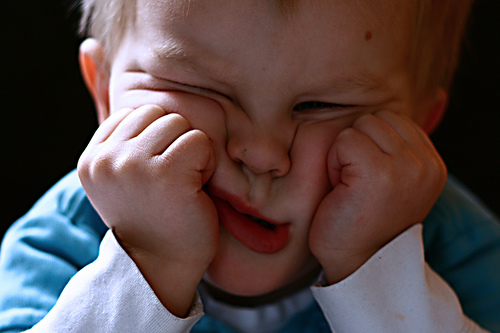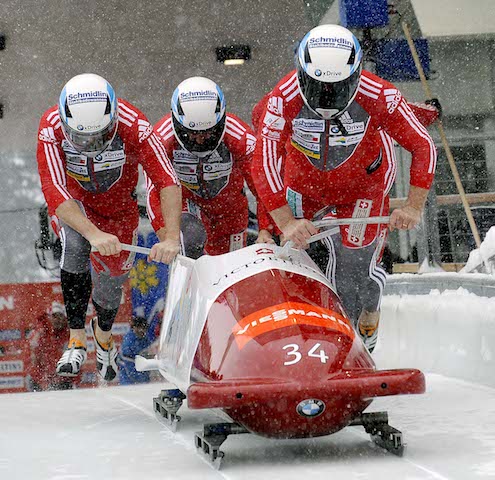Do you use ‘time-outs’ with your kids when they misbehave?
Most of us intend for time-outs to be a gentle strategy that gives our children a break and helps them learn. Or maybe we only use a time-out when we’re at the “end of our rope”–we’ve already tried everything we can think of, and we don’t know what else to do.
We want our kids to take some time to reflect on their behavior and our hope is that they will sit and think about what they can do differently next time.
The problem is that time-outs don’t actually work that way (nor do any other form of punishment.) Even when you look at child development research, time-outs are NOT shown to be an effective parenting tool.
Here’s why…
4 Reasons Time-Outs Don’t Work
Reason #1: No child sits in a timeout and thinks about how to improve themselves or how to do better next time…
Because a child in a time-out is mad and sad.
They’re thinking about how to “get back” at the person who is responsible for making them feel that way (“I’m mad at mom because she made me sit in this chair” and “I’m mad at brother because he hit me”).
And kids in a time-out are thinking about how to not get caught next time.
These mad and sad feelings may cause kids to hide their behavior and feel ashamed, which is the opposite of what we want them to learn.
Here’s the part that a lot of parents don’t realize…
Kids who act out or misbehave were really just doing their best all along (even if sometimes a child’s “very best” means that they are crying, kicking, screaming, or having a meltdown).
Reason #2: The child was doing the best they could
Kids (even young ones) don’t want to hit (or kick, or scream, or cry). They don’t like hitting. They know that hitting hurts people, and they don’t want to hurt the people they care about.
“Misbehavior” happens when the demands of the situation exceed the child’s skills to respond adaptively.
Said another way… Your child is not giving you a hard time, they are having a hard time.
“Kids do well when they can, when they can’t it’s because of unsolved problems and lagging skills.” – Dr. Ross Greene
If we rely on time-outs in parenting–our kids miss out on a chance to learn, and we miss out on a chance to teach.
The child is doing the best they can even if they use a meltdown “on purpose”, “to get what they want” or “to manipulate”. Regardless of the context, a meltdown suggests lagging skills, and a need for more support. The solution is to build a child’s social-emotional skills after the meltdown subsides. Once a child is ready, you can teach them how to explain what they want, how to calmly negotiate, and give them techniques they can use to calm down when they’re frustrated.
Reason #3: Time-outs–or any other form of punishment–are a distraction from learning
A simple way of defining “punishment” is taking away something that our child wants (“you don’t get to play with this”) or giving them something that they don’t want (a time-out).
Punishment distracts kids from learning because it causes a child’s brain to go into a fight, flight, freeze, or fawn response.
A brain that is in “fight or flight” is not ready to learn–only a calm brain is ready to learn.
We want our kids to be calm so that they can think through what happened, problem-solve, and maybe even prevent the situation from happening again. Only a calm and regulated brain has the ability to consider how to respond differently the next time, without shame or defensiveness.
Reason #4: Time-outs hurt our relationship with our kids
Our kids look to us to provide safety, protection, and understanding. Kids want us to know that there are times when even “their best” looks like “their worst”. If we’re giving them a time-out when they are trying their best, then kids don’t feel understood.
Kids who feel well, tend to act well.
Kids who feel well tend to be kind, generous, thoughtful, and considerate.
Kids don’t tend to behave better if they feel bad about themselves. (The same is true for adults!)
Effective Alternatives: What To Do Instead of Time-Outs
“But if I don’t give a time-out, isn’t that teaching my child that what they did was okay?”
This is a concern that a lot of parents have and it’s understandable.
Here’s the short answer: Kids probably already know that what they did was hurtful.
And if they don’t yet know that they hurt someone (and that hurting other people is wrong and not likely to get them what they want in the long term), then the conversations that you have with them afterward are the best way for them to learn.
Instead of putting your child in time-out, you can:
- Teach them different things to say or do in that situation
- Show them different ways to advocate for themselves
- Talk about how they can calm their feelings
- Help them understand what might be happening for the other person and to have empathy for others
- Help them understand their own feelings and behavior (without shame or embarrassment) and to have compassion for themselves
- Show them how to diffuse a situation, how to leave or take a break, how to be assertive and stay safe, and how to go to an adult for help
When in doubt about when and where to start…
Ask yourself: “Is my child ready to learn? Am I ready to teach them?”
If you can answer yes to those questions then, simply ask your child:
“What was your good reason for doing [X behavior]?”
Give your child some empathy, remembering that you don’t have to agree with what they’ve said in order to empathize with them.
Then, after they feel understood and seen, do some solution-based brainstorming together:
“What could you do next time this happens?”
Now, I’m curious about you: Does this post change the way you view your kids’ misbehavior and how to handle it? Let us know in the comments.










My sons are 1.5 and 3. They are not old enough for returning conversation, so I’m not able to ask them these questions, as my 3 year old has a speech delay and we are still working on getting him to say a few sentences and ask basic questions, but he isn’t old enough to articulate some of the things I’d be asking him to tell me from this post. Sometimes my boys fight, take things from each other, tackle each other, hit, etc. My 3 year old is almost constantly pouring out his drinks when I give them to him so he can play with it. Telling him he needs to keep his drink in his cup or I’ll take his drink, or actually taking it from him when he pours it out hasn’t improved his behavior. When I give him small instructions (let’s put your shoes on, keep your food on the plate, it’s time to go home now, it’s time to get ready for bed) he usually either responds with an ornery “no!” And gets cross. Or laughs and runs away from me and thinks it’s funny. (Chasing him down to get ready for bed is an ordeal that wears me out but he laughs the whole time) (When we are outside and I lose sight of him around the corner or something, when I start calling his name, and “where are you?” He thinks it’s funny and hides from me.) I’ve resorted to time outs when I’m at the end of my rope when he’s being too unruly or opposing. I figure giving both of us a “pause” is better than having me lose my temper and end up being mean, which I always regret and feel guilty about after ward.. When he comes out I have him sit on my lap and give him a hug and comfort him and we talk about what happened, (I have been asking “why” questions which I can stop and change to “what”) and then I try to calmly explain the situation (“when we dump out our milk it makes a yucky mess. Let’s play with water in the tub instead”, “when you run away from mommy outside by the street you can get hurt and we need to keep you safe. This is scary for mommy and mommy gets scared. You can get hurt or lost when you’re not with mommy”,or “I can tell that you are sad, I’m sorry you are sad, when you hit your brother it hurts him, let’s try to share and then everyone can be happy”) I try to give him an idea of what to do next time or have him repeat something back to me (“let’s drink your milk and keep it in the cup” “when we are outside i need you to stay by mommy. You say it with me, “stay by mommy” “what do we do outside?” (He repeats back, “stay by mommy)” but I can’t have conversations with my 1.5 year old. When he hits or something I just try to remove him from the situation or redirect his attention but he’s been pulling hair at daycare and he takes chunks out of my 3 year old’s hair as well when he gets a good hold on him. Not sure what to do when I can’t get my 3 year old’s attention/understand that I’m being serious with him when he’s laughing, or to “pattern interrupt” when he’s upset and hitting etc. he’s more settled when he comes out and sits still and listens to me at that point, but I don’t like doing it even when it does seem to “pattern interrupt” an emotional spiral when he’s hitting or throwing things 😕
Nichole, from what you’ve written it sounds like you’re doing a great job with your kids. I agree that with young kids some of these things might be too hard, however, even young kids are able to understand more than they can express. With pre-verbal kids, you can also “be their voice”. For example, if your pre-verbal child is crying because his sibling just hit him you can say “Your brother crying, that’s his way of saying ‘I didn’t like what you did. Hitting hurts me.'”
My sons are 1.5 and 3. They are not old enough for returning conversation, so I’m not able to ask them these questions, as my 3 year old has a speech delay and we are still working on getting him to say a few sentences and ask basic questions, but he isn’t old enough to articulate some of the things I’d be asking him to tell me from this post. Sometimes my boys fight, take things from each other, tackle each other, hit, etc. My 3 year old is almost constantly pouring out his drinks when I give them to him so he can play with it. Telling him he needs to keep his drink in his cup or I’ll take his drink, or actually taking it from him when he pours it out hasn’t improved his behavior… (Continued in reply)
I used time out as a way for my eldest to take some space until he felt calmer and ready to work things out. I would say how about taking some time out in your room Jack and you come out when you feel ready to talk about it. That meant I didn’t leave the two younger ones and he had some space in his private place if he needed it, to calm and think about what had happened for him. We would talk it through afterwards, he made the choice about when he went and when he came out and no doors were closed. I think I would have better ways to explore options with him now (grandparent age myself now), but it worked well for us. As a man now, he still uses this strategy to take space and come back when he is ready to talk.
I’m interested in your thoughts Cecilia?
That sounds great to me, Alex. I think the key pieces are: 1.) you talked to your child afterwards. 2.) You weren’t punative. 3.) you let your child judge when he was ready to come out again.
I think taking breaks is great (adult imposed time outs are not so great). And helping kids understand when they need to take a break and when their done with their break is a valuable life skill.
Diana, yes, a time-in is a great idea. Here’s a worksheet that you can use to come up with an “in the moment plan” https://www.happilyfamily.com/calm/
Ingrida, thanks for your comment. We’re all learning, remembering, and practicing. :)
Great article! It seems that I already know all of this, but it is neccessary to read or hear about it again and again as it is easily forgotten in high emotions situations! Thanks for keeping us informed ❤️
I love all of this but have a question about your suggestion of asking “what was your good reason for doing (X behavior)?” I’ve thought I learned that asking a kid why they did something (usually an undesirable behavior) is unhelpful because they often don’t know why they did and it can just lead to shame. Is there something specific in this wording about “what was your good reason” that makes this different, does it invite a different kind of thinking or conversation? I’d love to know more about how to utilize this with my four year old. Thanks so much!!